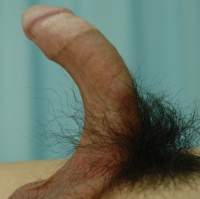Read works of Zhang Yan at 诗海 | |||
[The late Southern Song Dynasty poet]
Zhang Yan (1248 -?) Zi Shu Xia, No. Tamada, they laugh, Lok Yung, Linan (now Hangzhou) people. The "mountain
Words in the clouds. " He is the children of nobles, the words and writing early in your son's a leisurely life; Song Wang after neither an Official, wandering the Quartet,
Down and the end, the lyrics paint a portrait of lyric in the subjugation often with a deep sense of pain and life experience, mood pessimism. Over
Yellow River, he lamented that year North-South confrontation, ever thought of a visit Central Plains, but now it is in the Mongol domination,
Met the "old Liu official River, Sunset Trail" ("pot transit"); the face of the beautiful West Lake, he is a sad feeling
Sa bad cold climate, "Song of the Flute inadvertently adjourned to the dream" or even "afraid of meeting fly, afraid to listen to sing cuckoo" ("high balcony")
These are shown after he experienced a Song Wang unforgettable feeling of sorrow. The "solution chain Lone Wild Goose" is based on chanting the
Symbol written:
Chu Jiang empty nights. Chang outliers Miles, Huang came loose shock. Self-care film, For the next Han Tang, net sand grass is dry, the level of days away.
Was not a book, just send too, Acacia point. Materials follow error, and residual snow felt owned, enemies Simpleton. Unhappy flies who pity trip. Man
Nagato quiet night, Kam Cheng bomb resentment. Would like to partner, still places Barred Plymouth Rock, has read the spring before a trip should be transferred. Mu Yu echo, fear, abruptly,
Yu-off weight, see. He did not shame, Swallow returned, half of the volume draw curtain.
This is all alone, frightened intersection, yearning group companion The Lone Wild Goose, is the author's portrayal of their own state of mind. In the era of the giant
Change, he not only lost their previous living conditions, forced to drift around, and often are in a helpless, do not
Know what the final sense of loss, the words in the infiltration of such emotions.
(History of Chinese Literature, Pei Luo Yu, youth sweep school)
Translated by Google


